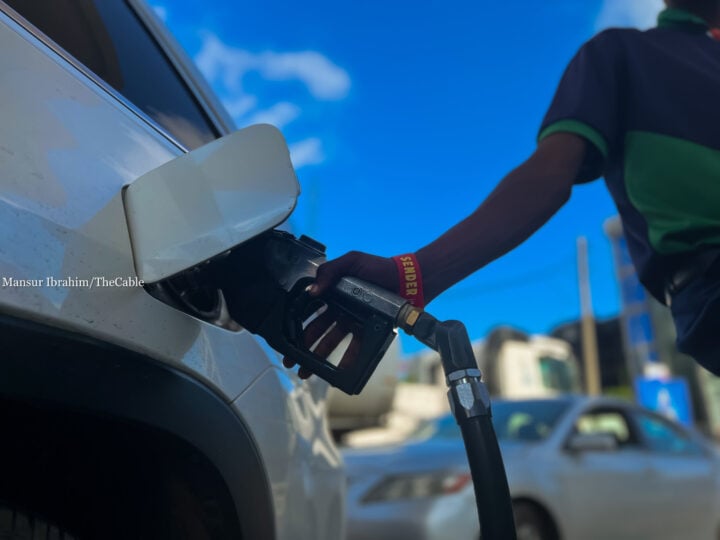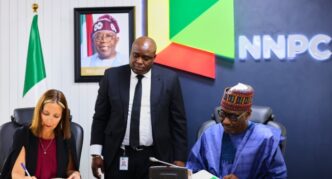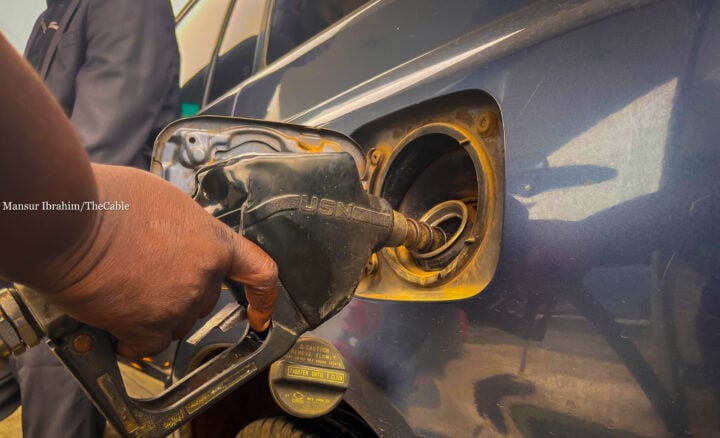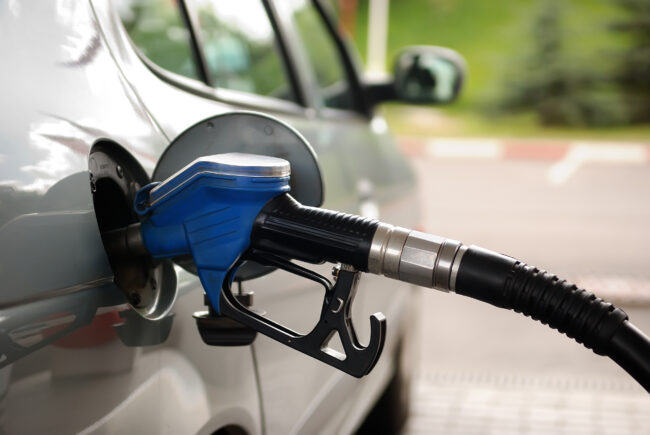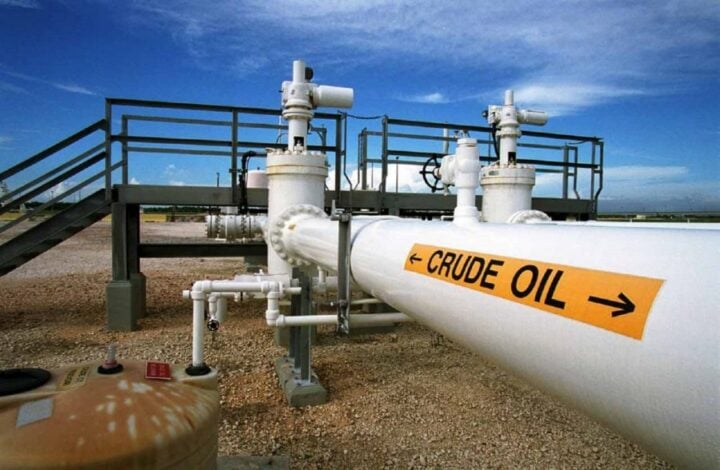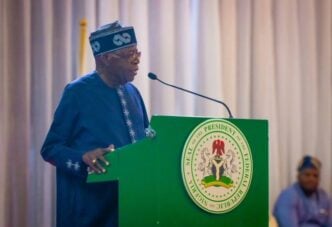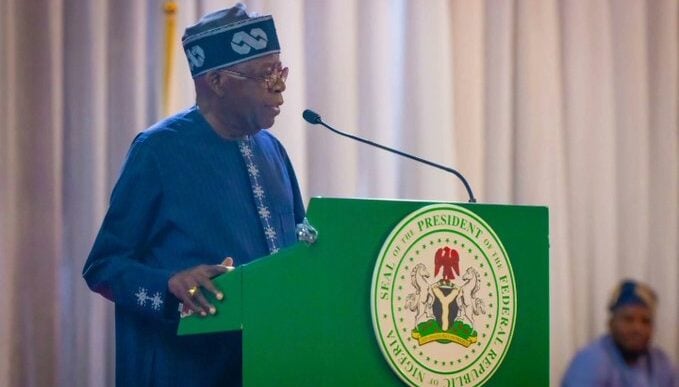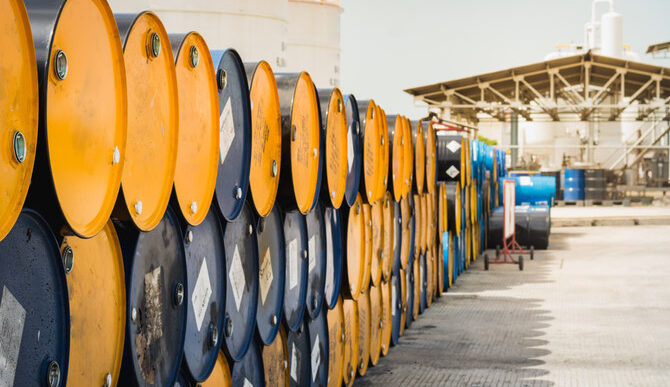Muda Yusuf, chief executive officer (CEO) of the Centre for the Promotion of Private Enterprise (CPPE), says the petrol price hike and scarcity of the product are worsening the economic situation.
On September 3, the Nigerian National Petroleum Company (NNPC) Limited increased the price of premium motor spirit (PMS), also known as petrol, across its retail outlets.
TheCable observed that the price of petrol was increased to N855 per litre — from about N600 — at an NNPC filling station in the Berger area of Lagos.
Speaking during an interview on Channels Television on Monday, Yusuf said the combination of petrol scarcity and a significant price increase, close to 40 percent, has exacerbated the economic situation.
Advertisement
“We had the challenge of scarcity and we had the challenge of the increase in price. That increase in price for me was a bit on the high side,” Yusuf said.
“We are talking about close to 40 percent given the socioeconomic condition in the country today. Let me say that the way things are now, it is extremely difficult for the government to walk away completely from providing subsidy.
“Because in whatever policy you conceptualise or want to promote, the social content of policy is extremely very important. Because the social cost of reform so far has been far beyond what many of us expected.
Advertisement
“So there has to be a moderation both in the pace of the reform and also the kind of pace it’s imposing on the citizens.”
He said the economic conditions make it difficult for the government to walk away completely from providing subsidy.
According to the CPPE boss, unlike many developed economies with robust social safety nets, Nigeria lacks such systems, necessitating a gradual and measured approach to reform.
He called for the government to continue to play a role in providing subsidy while ensuring that petrol transactions are localised to ease the fiscal burden.
Advertisement
Yusuf highlighted the Dangote refinery as a crucial opportunity for Nigeria to localise petrol production, which would improve transparency, strengthen the country’s foreign reserves, and reduce pressure on the exchange rate.
“We need to localise fuel importation. Luckily, we now have the Dangote refinery. It is a great opportunity for us to localise all transactions relating to fuel supply,” he said.
“That will increase the transparency and integrity of the process, help strengthen our reserves, and moderate the pressure on the exchange rate.”
‘NNPC’S LACK OF ENTHUSIASM TOWARD DANGOTE REFINERY BAD FOR ECONOMY’
Advertisement
Yusuf also expressed concern over the lack of enthusiasm from the Nigerian National Petroleum Company (NNPCL) Limited toward the Dangote refinery.
He described the situation as “very strange” and potentially harmful to the Nigerian economy.
Advertisement
“I am worried that the NNPC is not showing enough excitement about this Dangote refinery and it is very strange,” Yusuf said.
“Like many other Nigerians, we expect the NNPC to be a lot more enthusiastic. From the body language, from the pronouncement, it doesn’t seem like that and that will be very bad for this economy.”
Advertisement
Yusuf expressed concern about the delay in NNPC purchasing petrol from the Dangote refinery, saying that despite the completion of the refinery, NNPC continues to rely on imported petrol.
He urged NNPC and the government to provide all necessary support to domestic refineries, not just the Dangote refinery, stressing the need for commitment and transparency in this process.
Advertisement
“I think whatever capacity the NNPC has, let them make it available,” he said.
“They may not be able to provide everything that the refinery needs, but whatever they can provide, let them provide and let them provide in very concessionary terms because as much as possible, we need to ease the pains of Nigerians.
“So whatever we need to do to support domestic production, to support domestic refineries, not only Dangote, all the domestic refineries, we need to give them all the necessary support because there is a whole lot of benefits.
“Macroeconomic benefits, energy security benefits, job creation benefits, backward integration. There are so many benefits that we can derive from this.
“We need to compel the relevant institutions to please and to ensure the survival of this economy, they should support domestic production across sectors and they should do so transparently and they must show that commitment.”
On September 3, Aliko Dangote, chairman of Dangote Industries Limited, announced the commencement of petrol production at his refinery.
